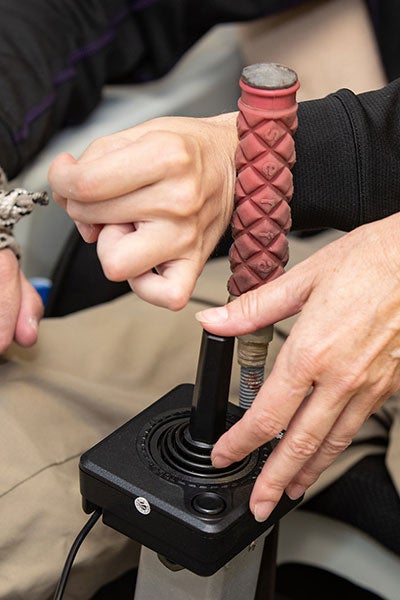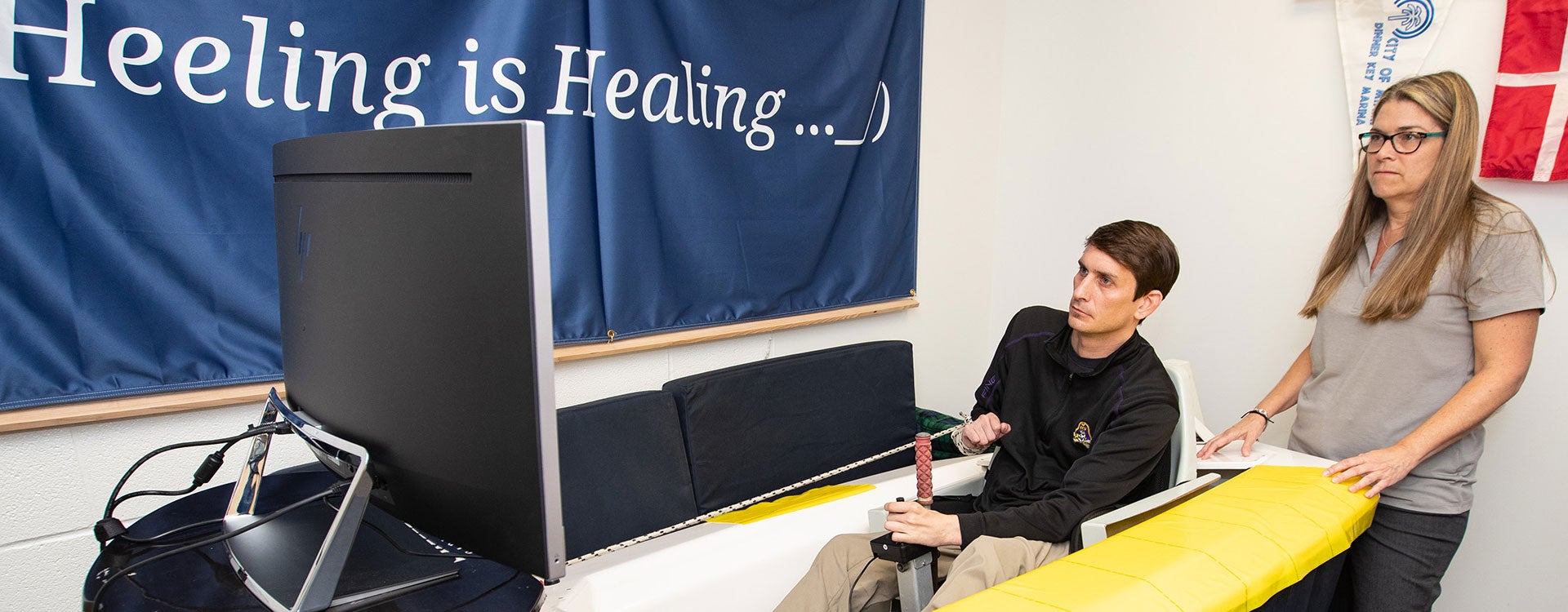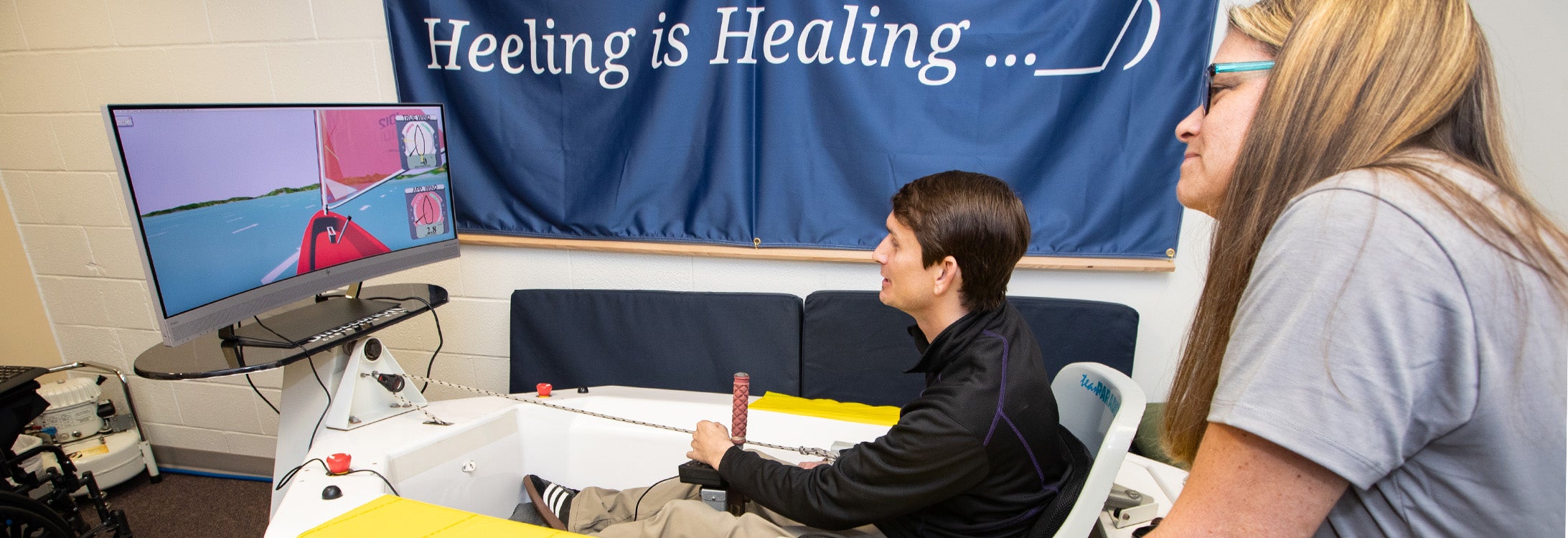HEELING IS HEALING
Research looks at how sailing contributes to rehabilitation, quality of life for people with physical disabilities
Brent Carpenter says he sometimes feels like a duck out of water, but research at East Carolina University is helping him get back in his element by learning to sail.
The 37-year-old Greenville man has always enjoyed being active. It’s just been a bigger challenge since he broke his neck while diving in a pool in 2006.

Brent Carpenter, who is participating in the ECU research, uses his hands to steer and control the virtual sailboat.
Not one to slow down, Carpenter, who is quadriplegic, is contributing to research at ECU while learning to sail on land in a virtual reality sailing simulator named Bonny, a dinghy adapted for people with physical disabilities.
Dr. Cari E. Autry, assistant professor of recreational therapy in the Department of Recreation Sciences in the College of Health and Human Performance, has been working with the simulator for two years. She and co-researcher Stephen Anderson brought it with them from Florida International University last year when they joined ECU, which offered dedicated lab space in the Belk Building.
It’s the only one in the UNC system and one of only three in the United States. Autry and Anderson’s research into the therapeutic use of sailing for people with disabilities, specifically those with spinal cord injuries, is part of an international consortium including Australia, Spain, England and other countries.
“There are many variables we are studying in our research – one being quality of life, which crosses physical, cognitive, social and emotional domains,” Autry said.
The 8-by-5 dinghy – adapted with a seat and joystick – connects to a computer programmed for sailing that can be customized for the weight of the participant, different sailboats, wind speed, gusts, wave height, courses and more.
Participants control the boat’s movement with the joystick, which can be operated manually or electronically, and a mainsheet line. It also can be set up with assisted technology called sip and puff, which allows those who can’t use their hands to send commands using air pressure by sipping or puffing on a tube or straw.
“You can hear the wind, the water and luffing of the sail,” Autry said. The boat also has a compressor, so it actually heels – a sailing term for when a ship or boat leans to one side as the wind exerts pressure on the sails. “Our motto for the simulation lab is ‘Heeling is Healing.’”
Bonny – named for one of the most famous female Pirates, Anne Bonny – gives Carpenter the virtual ability to sail in different bodies of water around the world. Recently, he sailed in Sydney Harbor with the famous Australian opera house on the horizon.
“It’s exactly the same thing as sailing in the water; he will know how to sail,” said Anderson, who is a longtime U.S. Sailing Association instructor.
Carpenter, a former extreme sports enthusiast who grew up at Lake Gaston, used to wake board but had never sailed. He has been learning sailing terms and specific skills each session, from tacking (changing course while sailing upwind) to jibing (changing course while sailing downwind), giving his upper body a workout.
“Just picking up the lingo – it’s a language of its own,” Carpenter said. “This is just something else for me to adapt to and pursue in my future.”
“He really has to adjust his body,” Autry said, noting the sessions engage Carpenter’s gross and fine motor skills, tracking, coordination, balance and stamina.
Carpenter, a board member of STAR (Support Team for Active Recreation), has spoken to ECU students in occupational therapy, physical therapy and recreational therapy. STAR is a self-help support group that promotes independence through social and adapted recreational activities and community outreach. Carpenter is an advocate and mentor for people who are in the hospital and adjusting to a new normal, encouraging them to get back in the community and get active.
Autry is still recruiting participants for the study. To sign up, call 252-737-1511, email autryca18@ecu.edu or visit https://hhp.ecu.edu/faculty/autry/.

Study participant Brent Carpenter concentrates on turning his virtual sailboat as ECU researcher Cari Autry observes.
